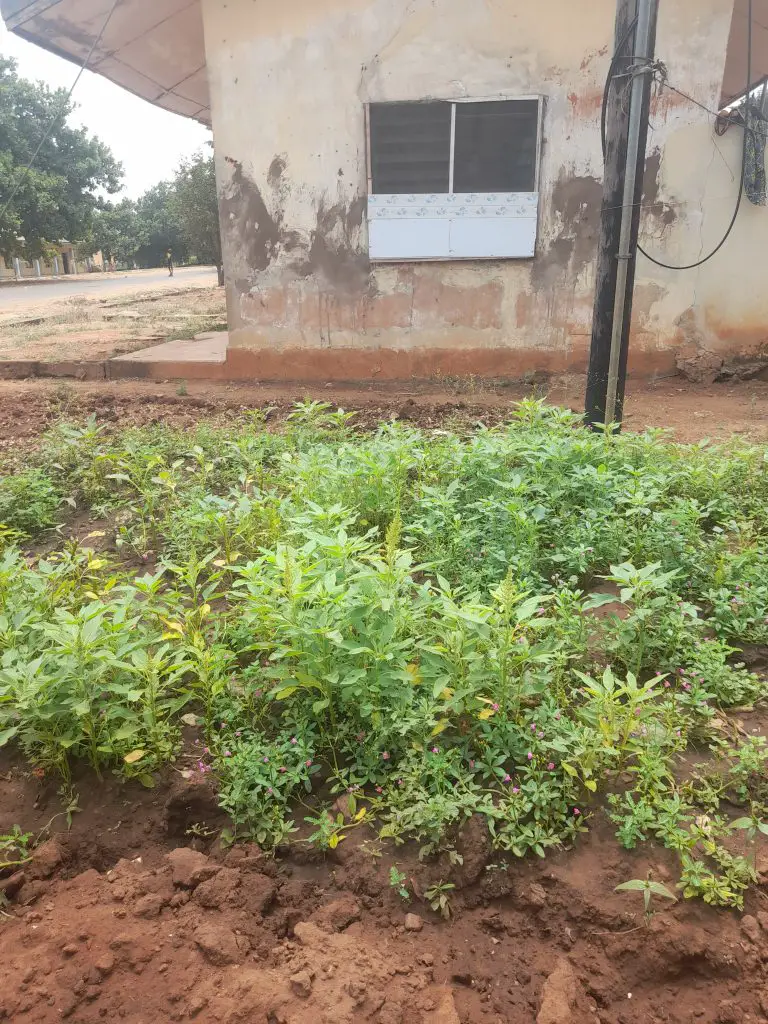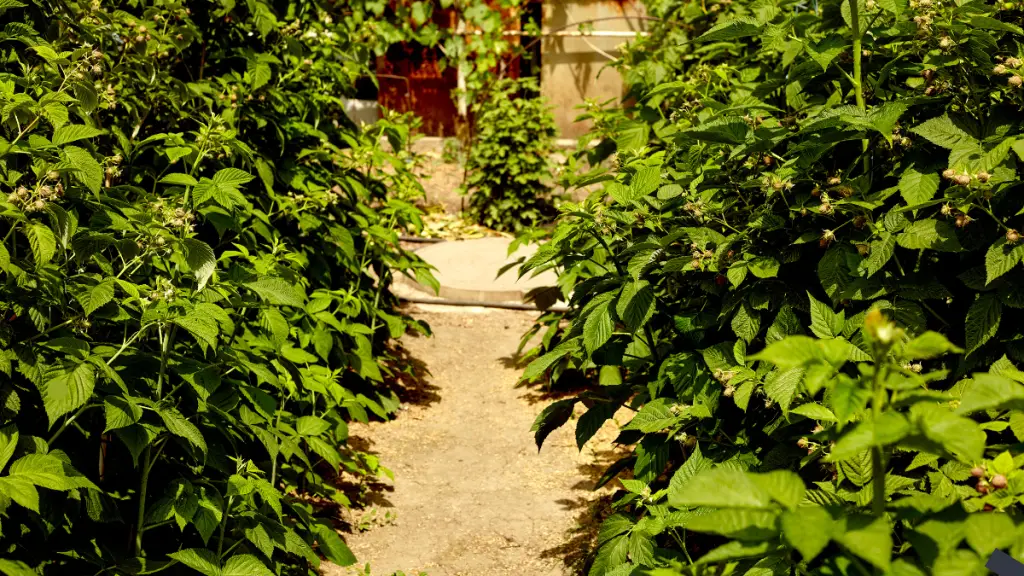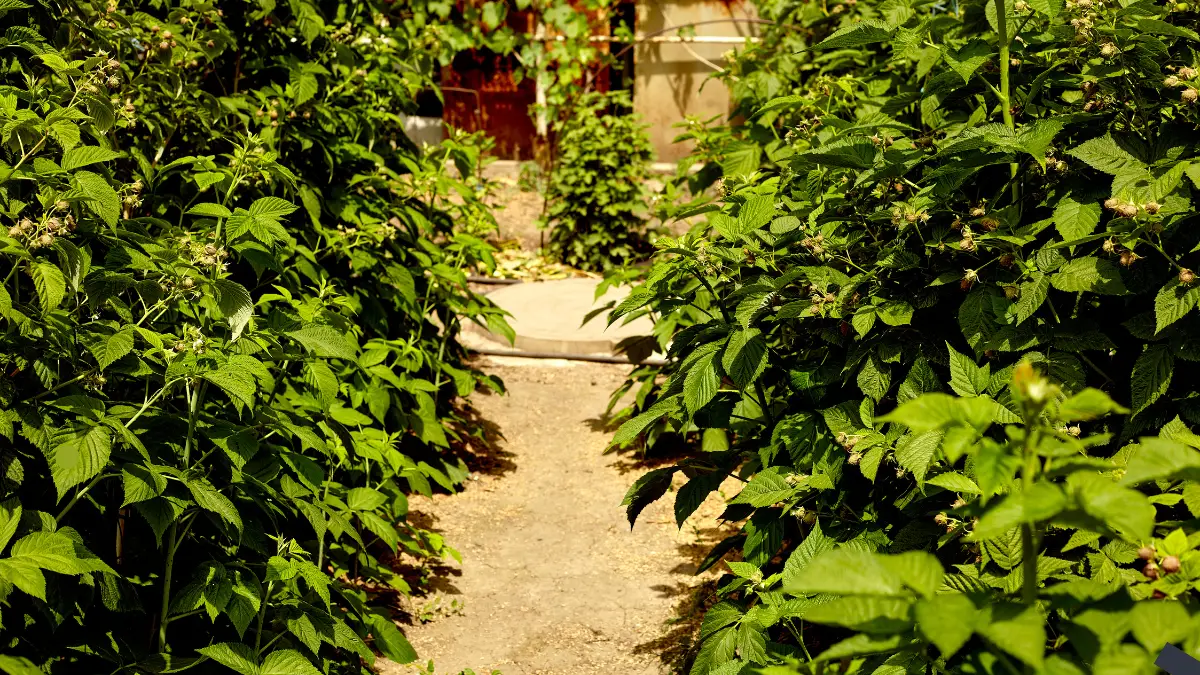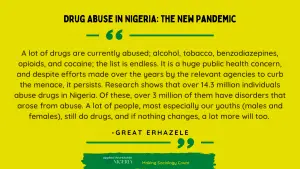Every morning when Mrs Awani wakes, she goes to her little garden by the compound to tend to her yams and vegetables. A year ago, that portion lay bare overgrown with weeds. However, it is a different sight now. She says; “ I used to buy my vegetables from the market but not anymore. That part of the compound was empty and weeds were just there. I make a lot of food that requires vegetables so I decided to start a garden and grow mine.”
The case of Mrs Awani is not peculiar. For Patrice, he started a small garden as he calls it for cassava. He saw others doing the same and decided he could do the same. He says; “I got some space and started my little garden so I can plant cassava. I already planted vegetables. Planting is the way now.”
Rising Economic Challenges
In recent years there has been more increase in people engaging in subsistence agriculture. Subsistence agriculture has long been described as a type of agriculture meant to provide for the needs of a family or small group. As society evolved, there has been less reliance on this style of agriculture.
However, in recent years we have witnessed the gradual rebirth of subsistence agriculture. Experts have pegged the rebirth of subsistence agriculture on a diverse number of reasons with the most notable being, economic reasons. According to the World Bank Food Security report, domestic food price inflation remains high across the world. With Nigeria’s inflation rate on the rise it has become inevitable for citizens to seek alternatives to ease their plight. In Nigeria, the cost of food increased to a staggering 40. 01% in March 2024.
Mrs Awani does not dispute this. She says her motivating factor in growing food crops was fueled by rising food costs in the country. She says ; “ Food items are currently so expensive in the market. It is so difficult going to the market these days because your money can barely buy you anything reasonable. I just got tired and that was what pushed me to start growing some of the food items to ease off on the burden.”
Patrice feels the same way. He considers the situation of the economy dire and believes this is the only way to conveniently stay afloat. He says “ Planting for me now is the only way. Things are no longer affordable as they used to be .”

A vegetable garden by the side of a house. Photo: Oviasuyi Glory
Dahunsi Damilola is a farmer, consultant and food safety advocate. He opines that there has been an increase in people taking up farming in recent times. He says that people need to farm and people have realised that they need to go back to farming due to present economic crises and they are going back to what was obtainable before; subsistence agriculture. He is not new to any of this. He started farming when he was in the university growing tomatoes and pepper because the prices were getting unaffordable and he decided planting will reduce his expenses. So he understands all too well people moving in this direction.
He says; “ The prices of goods in the market are skyrocketing everyday. People now understand that if they grow their own, they would not need to buy and they will reduce costs. If someone plants cassava, they realise they would not need to buy garri and that is a reduction in their overall expenses. Presently salaries are not increasing and a lot of states are even yet to implement the new minimum wage. So people search for ways to make their expenses lighter.”

Dahunsi Damilola at the farm. Photo: Dahunsi Damilola
Navigating challenges
Although a source of relief to citizens who grow their crops, there are still certain setbacks to this with the leading factor being the unavailability of land to grow crops. The unavailability of land makes it harder to start or expand. Chidi who has been meaning to start farming says he is held back by this. He says; “ I have seen people beginning to farm and I have been wanting to start mine but I am yet to get a little piece to begin. My current residential area does not have available land.’’
Mrs Uwani plants on a small parcel and says one of her challenges is expanding. She wants to plant more crops but the current space will only support her vegetables and yams for now. She says; “ I want to plant more but the space I have now is small and I have my yams and vegetables there.”
Dahunsi believes citizens can move towards communal or group farming. This will reduce the problem of land. He says; “People can move towards communal and alternative farming. People can come together and engage in group farming. They can purchase acres of land together and decide to plant chosen crops there.’’
Mrs Uwani also states that tending to the garden also requires labour on her part so the crops stay in good condition. She say; “ I have to check it out consistently so the crops are in good condition and that they are not overrun by weeds. Planting involves doing the work to ensure you will get the best out of it during harvest.”

Moving Forward
The rebirth of subsistence agriculture in Nigeria continues on an upward trajectory. More people will continue to be drawn to its path for obvious reasons. As inflation continues to rise more people will continue to see it as an alternative to their economic woes. It is also imperative that people do their due diligence when starting.
Dahunsi in his capacity encourages people to farm and he also provides consultancy services to this effect. He advises that people should also seek out informed opinions from those in the field for those who may be starting out but do not know where to begin. This he says will inform planting the right crops, available resources and other factors.
Despite challenges, Mrs Awani and Patrice are content tending to their gardens and the relief it brings them under present economic realities.







